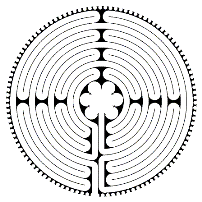"Assuming miracles happen, what is their chief limitation with respect to use in change management?" was a question I first posed on LinkedIn.
Here is my summary of answers posted before it was flagged:
"My summary take on the issue:
On the one hand, there are objections:
(A) Change management is an effort at control and miracles are outside of our control. The acceptable way to work with miracles is to consider them as luck. Work hard and prepare well (Bjorn);
(B) Change is not accomplished by one-time miracles (Sherri), but is more organic. Approach it more naturally like tending a garden (Kevin);
(C) Introducing "miracles" into discussions invites divisive debates about religious beliefs (LB) and suggestions about where such talk is more appropriate (Jorgen);
(D) Depending on the source of the "miracle," it is still a matter of choice of what to believe. (Cristina)
On the other hand, some:
(E) see no limitations (Ryan) because God (not god or gods) is ultimately the cause (Ralph);
(F) see miracles as a change of consciousness (Elaine);
(G) see miracles everyday and encourage seeking miracles without limitation, but warn against thinking God's a miracle-machine (Arne);
(H) see life as miraculous for people of faith (MarcArthur).
I answer as follows: Miracles, supernatural interventions by God into the natural order of life, happen. They happen every day to and in view of people all over the world. Their chief limitation is that miracles convert the mind by force of evidence whereas change is accomplished by change of heart (will). A miracle may be necessary in helping some achieve change but a miracle is not sufficient to force change. We, with our God-given free will, may still resist the message of the miracle.
In reply to the responses, I say:
(A) & (E) In the most difficult situations, praying for a miracle after hard work and preparation is the way miracles have traditionally been sought. (Ask and you shall receive.) Miracles may appear as luck to those yet to receive the gift of faith in God.
(B) & (F) Change is not accomplished by one-time miracles, unless the one-time change is a change in consciousness which is the inner response to outward signs of miracles. Seeds must be sewed in good soil, but they sprout as if all at once.
(C)& (G) Permitting miracles to be discussed in change management may result in more unifying conversations about where changes must take place: in our hearts, not just in our minds. ("Believe me...the hour is coming when you will worship the Father neither on this mountain nor in Jerusalem...").
(D)& (H) When a person believes that God is the source of a miracle, which is correct by definition, he or she has arrived at this belief, neither by mere choice among available alternatives nor by rational judgment based on pre-established criteria, but by a process of decision-making. In that process, the person has assented to what God wants shown by way of the miracle. (The blind see; those who don't are blinded.) Those who “get it” may be grateful. Those who don’t may want to renew their sense of wonder. "
The question was flagged for the following "reasons":
This question has been flagged by other users as:
* inappropriate content
* misrepresentation
* other
What do you think?
John
for people who want to make better decisions
MOVIES FOR DECISION-MAKERS
Below are the cover images of movies for decision-makers, with clues to better decision-making.
Romero: the significant decision
"I know men and I tell you that Jesus Christ is no mere man. Between Him and every other person in the world there is no possible term of comparison. Alexander, Caesar, Charlemagne, and I have founded empires. But on what did we rest the creation of our genius? Upon force. Jesus Christ founded His empire upon love; and at this hour millions of men would die for Him."
--Napoleon
Decision-making: like climbing ...

a spiral staircase...one step at a time.
John Darrouzet
Special Counsel for Decision-Makers
Links
Followers
Subscribe To
********************* Advertising Disclaimer *********************
NOTE WELL:
Allowing the placement of the ads set out below should not be interpreted to constitute an endorsement or recommendation in any way by Special Counsel for Decision-Making or John Darrouzet of the content or programs referred to therein by the advertisers.
*****************************************************************************************************************************************
Allowing the placement of the ads set out below should not be interpreted to constitute an endorsement or recommendation in any way by Special Counsel for Decision-Making or John Darrouzet of the content or programs referred to therein by the advertisers.
*****************************************************************************************************************************************
*************************** Legal Notice **************************
Decision-Maker's Path (tm) trademark by, and blog content copyright © 2008, John Darrouzet. All rights reserved.


















































No comments:
Post a Comment